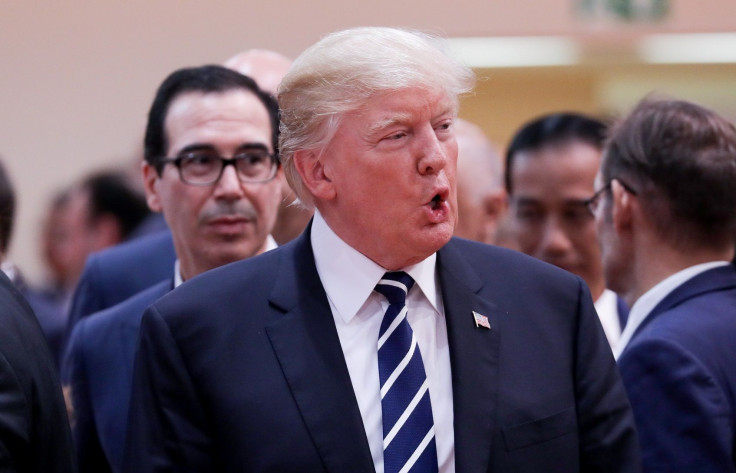Charlottesville protest: Trump in hot water for ‘failure’ to condemn white supremacists

US President Donald Trump is in hot water as Republicans and Democrats argue that he is failing in condemning white supremacy groups after the Charlottesville incident, which killed a woman when a car smashed into anti-racism protesters this weekend. The US Department of Justice has reportedly opened a civil rights investigation into the incident.
The president’s alleged failure to directly blame white supremacists has led to harsh criticism. Many politicians from all sides want Trump to make the condemnation more precise, which includes leading Democrats and Republicans like senators Marco Rubio and Cory Gardner and New Jersey’s governor Chris Christie.
Gardner has tweeted about calling evil by its name. Meanwhile, Rubio tweeted there was “nothing patriotic about Nazis.”
“We reject the racism and violence of white nationalists like the ones acting out in Charlottesville,” Christie, a staunch Trump supporter, wrote. She added that everyone in leadership has to speak out.
On Saturday, Trump condemned hatred and violence in his remark, but did not single out the white supremacists whose attempt to hold a rally in Charlottesville, Virginia led to a state of emergency. More than 30 were reportedly injured after some marched through Charlottesville’s streets shouting “Hail Trump” while making Nazi salutes.
Tom Bossert, the White House homeland security adviser, defended Trump’s statement by suggesting that some of the counter protesters were also violent. On Sunday, the White House pointed out that the president strongly said in his statement that he condemns white supremacists, KKK Neo-Nazi and all extremist groups. The White House added that Trump called for national unity to bring Americans together.
Trump is also criticised on social media for his “failure” to condemn an act of domestic terrorism at the Dar Al Farooq mosque. “The only thing missing from Trump’s denunciation of the attack on a Minnesota mosque was a denunciation of the attack on a Minnesota mosque,” one Twitter user wrote.
The POTUS’ silence on the attack follows similar periods of quiet following the shooting at a mosque in Quebec, which claimed the lives of six people, the murder of a Muslim teenager in Virginia and the Finsbury Park mosque attack in London that killed one person. He was also under fire for a delayed response to a rise in anti-Semitic attacks on the Jewish community’s centres and cemeteries this year.
Read More:
Turkish cop fatally stabbed by suspected IS suicide bomber; attacker shot dead
US agrees to give Australia additional intelligence to chase tax avoiders
CNN/YouTube





















